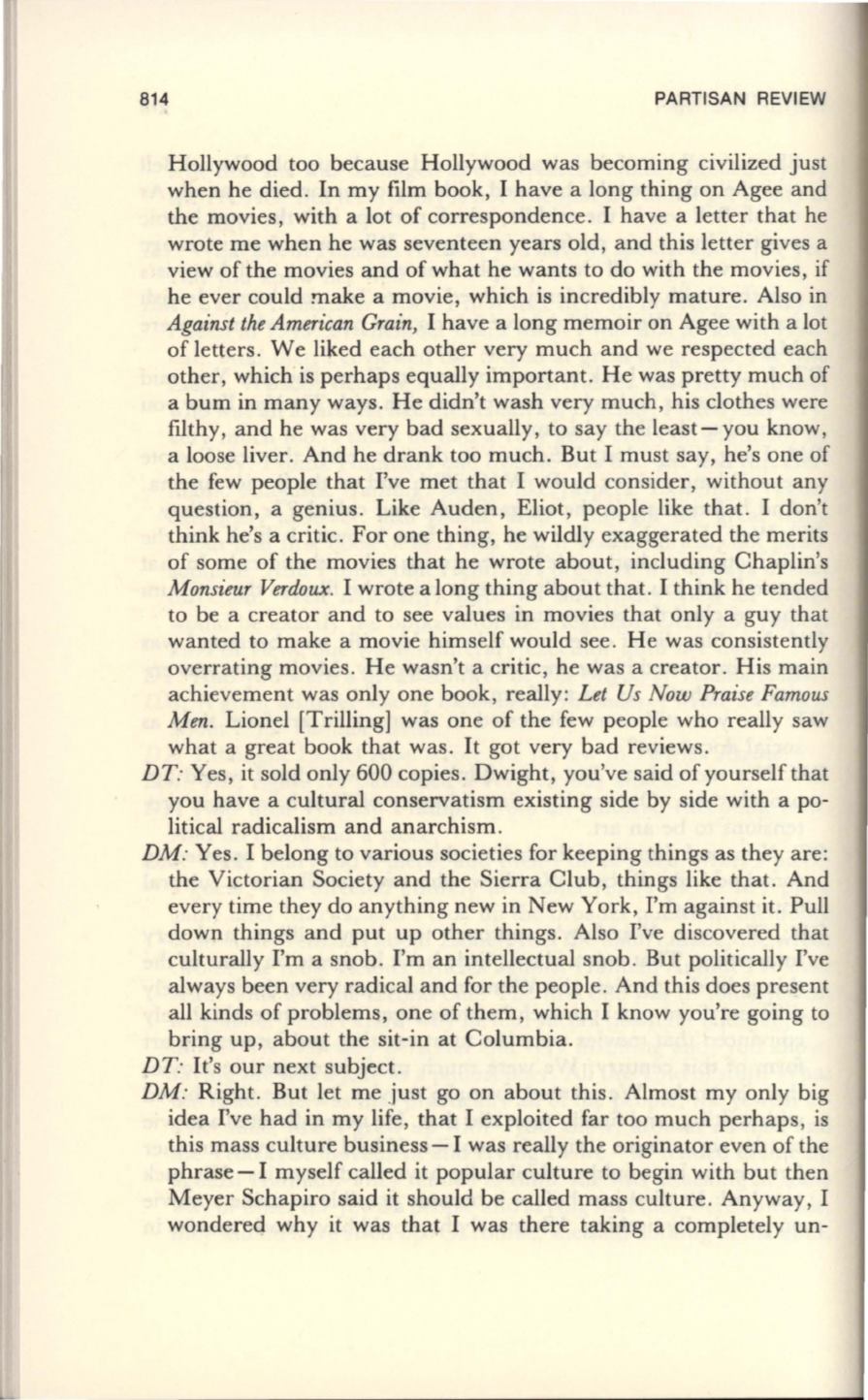
814
PARTISAN REVIEW
Hollywood too because Hollywood was becoming civilized just
when he died. In my film book, I have a long thing on Agee and
the movies, with a lot of correspondence . I have a letter that he
wrote me when he was seventeen years old, and this letter gives a
view of the movies and of what he wants to do with the movies , if
he ever could make a movie, which is incredibly mature. Also in
Against the American Grain,
I have a long memoir on Agee with a lot
of letters . We liked each other very much and we respected each
other, which is perhaps equally important. He was pretty much of
a bum in many ways . He didn't wash very much, his clothes were
filthy, and he was very bad sexually, to say the least- you know,
a loose liver. And he drank too much. But I must say, he's one of
the few people that I've met that I would consider, without any
question, a genius . Like Auden, Eliot, people like that. I don't
think he's a critic. For one thing, he wildly exaggerated the merits
of some of the movies that he wrote about, including Chaplin's
Monsieur Verdoux.
I wrote a long thing about that . I think he tended
to be a creator and to see values in movies that only a guy that
wanted to make a movie himself would see. He was consistently
overrating movies. He wasn't a critic, he was a creator. His main
achievement was only one book, really:
Let Us Now Praise Famous
Men .
Lionel [Trilling] was one of the few people who really saw
what a great book that was . It got very bad reviews .
DT:
Yes, it sold only 600 copies. Dwight, you've said of yourself that
you have a cultural conservatism existing side by side with a po–
litical radicalism and anarchism.
DM:
Yes . I belong to various societies for keeping things as they are:
the Victorian Society and the Sierra Club , things like that. And
every time they do anything new in New York, I'm against it. Pull
down things and put up other things. Also I've discovered that
culturally I'm a snob . I'm an intellectual snob. But politically I've
always been very radical and for the people . And this does present
all kinds of problems, one of them, which I know you're going to
bring up, about the sit-in at Columbia.
DT:
It's our next subject.
DM:
Right. But let me just go on about this. Almost my only big
idea I've had in my life, that I exploited far too much perhaps, is
this mass culture business- I was really the originator even of the
phrase- I myself called it popular culture to begin with but then
Meyer Schapiro said it should be called mass culture . Anyway, I
wondered why it was that I was there taking a completely un-


